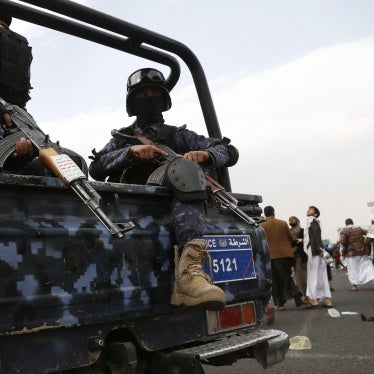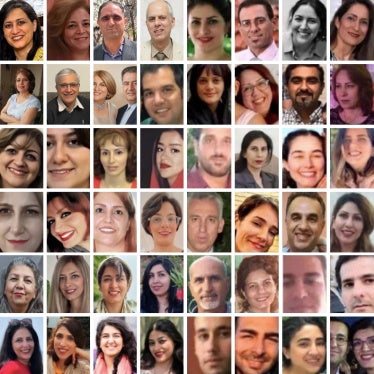Human Rights Watch welcomes the UPR report on Saudi Arabia, which records Saudi Arabia's acknowledgment that human rights violations occur and its commitment to ending them, including by welcoming objective criticisms and by amending practices and legislation that undermine human rights. The UPR report includes important recommendations concerning Saudi Arabia's cooperation with human rights mechanisms; the human rights of women; the fairness of the criminal justice system; religious minorities; and migrant workers.
We urge Saudi Arabia as an elected member of the Human Rights Council to fully comply with all its special procedures, including by issuing standing invitations to all Special Rapporteurs and Working Groups wishing to visit the kingdom and by responding factually to all inquiries from these special procedures and the treaty monitoring bodies. We also encourage the kingdom to allow independent international human rights organizations to visit the country. We support the report's recommendations that Saudi Arabia promulgate a law regulating nongovernmental organizations in compliance with international standards, and that the rights to freedom of expression, association and peaceful assembly be fully respected, especially for human rights defenders. We regret that the kingdom's delegation rejected consideration of lifting travel bans against individuals on the basis of political belief. Ali al-Dumaini, Matrook al-Faleh and Abdullah al-Hamid, three persons sentenced for public calls for a written constitution, but pardoned by King Abdullah in August 2005, remain under such bans.
We also regret that Saudi Arabia summarily rejected calls to lift its reservations to CEDAW or to ratify its Optional Protocol. Saudi Arabia's acknowledgment that "the concept of guardianship [can turn] into domination and coercion," underlines the need for dismantling the male guardianship system in order to guarantee women's rights to freedom of movement, to work, education, health care, marriage and divorce on par with that of men. We commend Saudi Arabia's legislative steps to combat domestic violence and violence against children, and emphasize the need to implement and enforce those measures, including by securing women's access to justice.
We also welcome revised legislation that affirms the presumption of innocence, acknowledges the right to compensation where miscarriages of justice occur, and strengthens the independence of the judiciary. But additional reforms are needed. A reworked Law on Criminal Procedure should also include clear guarantees of a defendant's right against self-incrimination and mandate the government to charge promptly persons taken into custody for criminal offenses. Saudi Arabia should energetically pursue efforts to codify criminal law into a penal code that is in compliance with international human rights standards. Saudi Arabia should urgently implement recommendations abolishing the death penalty for persons convicted of crimes while they were under the age of 18. Sultan bin Sulaiman bin Muslim al-Muwallad, a Saudi Arabian, and' Isa bin Muhammad' Umar Muhammad, a Chadian, who were both 17 years old at the time of their arrest in 2004, were executed in mid-May 2009. Saudi Arabia should further place a moratorium on the death penalty pending a review of the fairness of trials involving capital punishment, and its effectiveness as a deterrent factor for drug cases. All defendants in capital cases should benefit from professional legal assistance.
Human Rights Watch welcomes King Abdullah's initiative to international interfaith dialogue, but believes the priority for the kingdom should be to uphold religious freedom for its domestic religious minorities, in particular by guaranteeing freedom of worship to Shi'a and Isma'ili Muslims and by ending discrimination against them in the justice system and employment.
Human Rights Watch also joins the report's recommendations to strengthen the rights of migrant workers, in particular migrant domestic workers. The kingdom should expeditiously publish its annex to the Labor Law specifying rights and duties of domestic workers, and move ahead this year with plans to end the individual sponsorship system. Its law enforcement officers should pay special attention to investigating and, where warranted, prosecuting, cases of forced labor under the new Trafficking Law.








